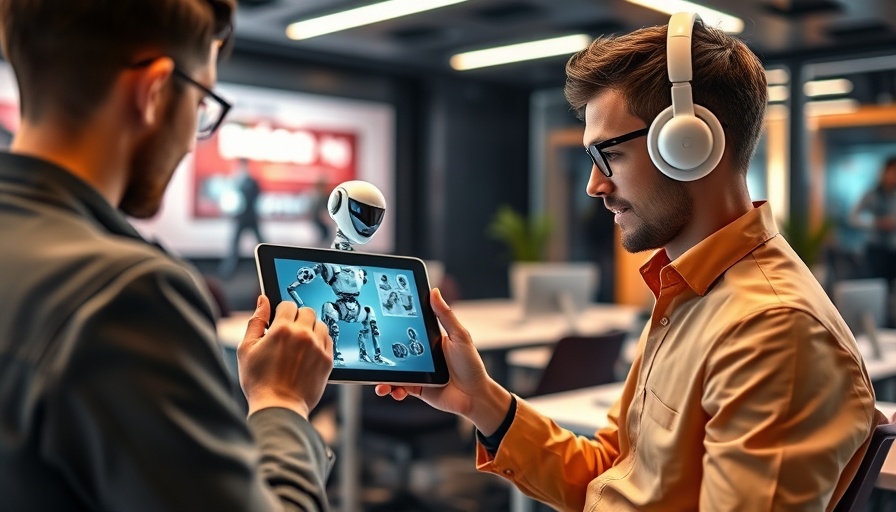
Understanding the Rapid Transformation of Work
In today's rapidly evolving professional landscape, the fear that artificial intelligence (AI) will take away jobs is pervasive. However, Dror Poleg, a New York-based economic historian, challenges this fear with a fresh perspective. His research highlights not just potential disruptions but also new opportunities for human-centric work as AI takes on less creative tasks.
AI's Role in the Workplace: A Partnership, Not a Replacement
Poleg posits that rather than job-stealing, AI is redefining roles, allowing humans to focus on higher-order cognitive tasks – those that necessitate empathy, creativity, and critical thinking. For many industries, AI will handle repetitive, data-driven activities, enhancing productivity without diminishing the roles of human workers. The narrative shifts from one of fear to one of collaboration, where human intuition supplements machine learning.
Future Work Environments: Redefined and Human-Centered
The future of work is not about robots taking over; it’s about creating an environment that values human skills that AI cannot replicate. Workers will find themselves in positions that allow for personal growth, creativity, and deeper interpersonal connections. As businesses adopt AI technologies, they tend to focus on mental health and workplace balance, creating spaces where people can thrive.
The Impact of Remote Work in the AI Age
The COVID-19 pandemic accelerated the trend toward remote work, a shift that many continue to embrace. Remote work isn't just a temporary fix; it's a permanent fixture for many organizations. With AI streamlining workflows, employees can manage their time more effectively, reducing burnout and enhancing work-life harmony. This transition has also made it possible for organizations to hire talent from all over the world, thus embracing a more diverse workforce.
Challenges Remain: Navigating Workplace Stress and Burnout
While AI can enhance productivity, it cannot solve all challenges. The issues of workplace toxicity, stress, and burnout are real, and they demand focus. Employers will need to harness AI to enhance employee well-being. From managing workloads to promoting mental health awareness, the emphasis should be placed on creating a supportive and dynamic work environment, one where technology complements human effort rather than complicates it.
Blending AI with Compassionate Leadership
Leadership in this new era requires not just a command of technology, but also a deep understanding of human dynamics. Companies that encourage empathy and strong team connections will thrive. The emphasis shouldn't solely be on efficiency; the human experience must also be preserved. Leaders can act as champions of this empathetic approach, leveraging AI to foster an inclusive atmosphere.
Empowering Employees: Harnessing AI for Growth
Incorporating AI into workplaces offers a golden opportunity to empower employees. By providing training and resources, organizations can ensure their workforce grows alongside technology. This leads to a skilled workforce that can adapt and innovate, making the future more secure and promising as companies keep pace with technological advancements.
Seeking Balance in a Tech-Driven World
To truly embrace this AI-augmented future, individuals and organizations must prioritize balance. This means maintaining mental health, fostering productive work environments, and managing stress levels effectively. AI can aid in monitoring work patterns, helping organizations identify when employees are overextended or struggling, leading to proactive adjustments that benefit everyone.
Take the First Step Towards Embracing Change
Understanding that AI is an ally rather than a foe can transform our work lives. Change is intimidating, but knowledge is empowering. As we navigate this landscape, it’s crucial for workers and employers alike to engage in conversations about how to effectively adapt, prioritize mental health, and improve work dynamics.
Conclusion: Embracing Our Future Together
As we stand on the brink of a new era, the approach we choose will shape our work environments. Embracing AI with a commitment to human empathy and progressive practices will lead to a more enriched workplace. It isn't about AI taking away jobs; it's about us learning to leverage it to enhance our own human potential. The future is here, and it invites us all to engage, adapt, and thrive.
 Add Row
Add Row  Add
Add 




Write A Comment